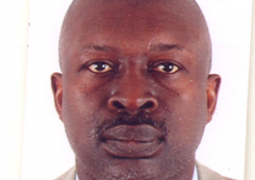This
includes the families of ‘Ali, Ja’far, al’Abbas, and al-Harith. Ibn Qudamah
says there are no two opinions on the ineligibility of Banu Hashim to receive
zakah. The Prophet, upon whom be peace, declared: “Indeed, sadaqah ought not to
be given to the family of Muhammad ...” Muslim related it. Abu Hurairah
reported that when al-Hasan took one date from the sadaqah dates, the Prophet,
upon whom be peace, said to him: “Nay, spit it out! Don’t you know that we
cannot eat from charity?” Scholars agree on the authenticity of this hadith. As
to the eligibility of Banu al-Muttalib for zakah, the scholars differ.
Ash-Shaf’i holds that like Banu Hashim they are disallowed to take zakah. Ash-Shaf’i, Ahmad, and al-Bukhari relate from Jubair ibn Mut’im who said: “At the battle of Khaibar, the Prophet, upon whom be peace, set aside the share of the relatives of the families of Banu Hashim and Banu al-Muttalib and left out the shares of Banu Nawfal and Banu ‘Abu Shams. I and ‘Uthman ibn ‘Affan came to the Messenger of Allah, upon whom be peace, and said to him: ‘O Messenger of Allah! Do not deny Banu Hashim the grace of their position because Allah placed you among them. How about our brothers Banu al-Muttalib? You gave them and left us out? Isn’t our relationship one and the same?’ The Prophet, upon whom be peace, answered: ‘I and Banu al-Muttalib are not to be separated either during Jahiliyyah or Islam. We and they are one.’ Then he joined his fingers [in demonstrating the close relationship].” Reason dictates that one should not differentiate between them (the two families) in any matter of law because they are one according to the saying of the Prophet. It is evident that they are the family of Muhammad, and therefore, sadaqat are forbidden to them. Abu Hanifah holds that the family of Banu al-Muttalib may take from zakah. Both these reports are related by Ahmad. Just as the Messenger of Allah, upon whom be peace, made charity unlawful for the family of Banu Hashim, he also made it unlawful for their proteges (mawla). Abu Rafi’, a protege of the Prophet, said that the latter appointed a man from the family of Banu Makhzum to collect sadaqat. This man said to Abu Rafi’: “Accompany me so that you may get some of it.” He said: “No, until I meet the Messenger of Allah, upon whom be peace, and ask him.” He left and asked him. The Prophet answered: “Sadaqah is not lawful for us--and the proteges of a certain tribe are like [the members of the tribe] themselves.” Ahmad, Abu Dawud, and at-Tirmizhi related it. The latter grades it good (Hassan) and sound (sahih).
Whether nonobligatory charity (Tatawwu’) is lawful for the family of the Prophet or not, scholars differ. Ash-Shaukani, having summarized the views on the issue, says: “The apparent meaning of the Prophet’s hadith, ‘Sadaqah is unlawful for us,’ is the unlawfulness of the obligatory as well as nonobligatory sadaqat.” A group of scholars, including al-Khattabi, says that its prohibition for the Prophet, upon whom be peace, carries consensus. Based on ash-Shaf’i’s report, many others have ruled that the prohibition of zakah to the Prophet does not include the nonobligatory charity. A report from Ahmad equally says so but Ibn Qudamah rejects all these reports for lack of clear evidence.
As for the family of the Prophet, upon whom be peace, the vast majority of the Hanafiyyah, the Shaf’iyyah, the Hanbaliyyah, and the majority of the Zaidiyyah hold that nonobligatory sadaqah is permissible for them but not the obligatory one, since to them the latter is nothing but filth that comes out from people’s holdings. This is understood to mean that the (prescribed) zakah and not the nonobligatory sadaqat, are forbidden to them. It is said in al-Bahr that nonobligatory sadaqah is restricted by being confined to a donation, gift, or endowment. Abu Yusuf and Abu al-’Abbas maintain that it is unlawful for them, as is the prescribed charity, because there is no evidence of the contrary.
Fathers and Sons
The jurists agree that it is not permissible to give zakah to one’s father, grandfather, mother, grandmother, son, grandson, daughter, and her children because the zakah payer is obligated to take care of all such people anyway. In case of their poverty, they should draw upon his largesse because it is their right. Thus, if he pays them zakah, he benefits himself and avoids the obligation of supporting them. Malik exempts the grandfather, grandmother, grandsons, and granddaughters because one does not have an obligation to support them if they are poor. However, if they are well-off and fought voluntarily for the cause of Allah, the zakah payer may give them some of the zakah designated for those fighting in the cause of Allah. He may also give them some of the share meant for debtors, though he is not obligated to pay off their debts. He may also give them a portion of the amount set aside for zakah collectors, provided they are in this category.
A: The Wife
Ibn al-Munzhir says that all scholars agree that a man is not obligated to give his wife Zakah the reason being that adequate support for her is already enjoined upon him, unless she is in debt. In that case, she may be given from the debtor’s share to pay off her debt.
B: The Distribution of Zakah in Order to Grow Nearer to Allah
It is not permissible to distribute zakah so as to grow nearer to Allah other than what Allah, the Exalted One, mentions in the ‘ayah: “The alms are only for the poor and the needy” (at-Taubah 60). Thus, zakah cannot be paid for establishing mosques, bridges, road repair, hospitality, shrouding the dead, and so on. Abu Dawud witnesses: “I heard Ahmad while he was asked whether spending part of the zakah on shrouding the deceased was permissible. He said: ‘No. Nor can it be used to pay the debt of the dead.’ “He also said: “One can pay the debt of a living person from the zakah but not that of the deceased. For a person who dies, there is no debt.”
Ahmad was also asked what would happen if it had been given to help them redeem their debt. He answered: “Yes, for his family it is all right.”
Who Distributes Zakah?
The Messenger of Allah used to send his authorized agents to collect zakah. He would then distribute it among the deserving people. Abu Bakr and ‘Umar did the same. There is no difference between unhidden wealth (i.e., plants, fruit, cattle, and minerals) and hidden wealth (i.e., trade goods, gold, silver, and treasure). When ‘Uthman became caliph, he followed this practice for a while. Later on, when he saw that the hidden wealth was tremendous and that pursuing it embarrassed the community and while checking it harmed its owners, he left the payment of the zakah on such property to the individual’s discretion. Jurists agree that the owners themselves should assume the distribution of zakah, especially when it is for hidden wealth. As-Sa’ib ibn Yazid reported: “I once heard the Messenger of Allah, upon whom be peace. He said: ‘This is the month of your zakah. If any one of you still owes a debt, let him pay it off so that your properties become free from debts. Then, you can pay the zakah on them.’ “ Al-Baihaqi relates it with a sahih chain.
An-Nawawi says that some scholars agree with this practice: Who should distribute the zakah on hidden wealth Is it preferable for the owners to distribute the zakah due on their hidden wealth, or is it preferable to let the leader distribute it?
There is more than one opinion on this subject. The preferred choice among the Shaf’iyyah is that zakah be paid to the government, especially when it is a just government. According to the Hanbaliyyah, it is preferable that the zakah payer distribute it himself, even though it is permissible to give it to the ruler. On the other hand, Malik and the Hanafiyyah hold that if the wealth is unhidden, the Muslim leader and his agents have the authority to ask for and take their zakah. The opinion of the Shaffiyyah and the Hanbaliyyah concerning unhidden wealth is similar to that on the hidden ones.
TO be continued
Read Other Articles In Article (Archive)
Warriors win handball final
May 8, 2012, 2:27 PM
Ngogu's OB anticipating end - game victory
May 14, 2010, 4:29 PM



